Wife of Doamna Maria Despina
His lover was:
His lover was:
Mehmed II, Ottoman Sultan.
"While a hostage at the Ottoman court in the 1440s, Radu (whose epithet, "cel Frumos" means "the Handsome"), younger brother of Vlad III the Impaler, became the beloved of the Ottoman Sultan, Mehmed II, after first refusing his favors and wounding him with his own sword. The sultan is said to have prevailed upon the boy by means of presents and kind usage. The relationship lasted many years and Radu was raised to the highest posts in the army." (Sources: Vlad Tepes Dracula)
"Although Dracul's two boys were not killed, their lives were certainly in danger, and the terms of their imprisonment were made harsher. A Turkish document states that Radu, the handsomer of the two, had to defend his honor against the sexual advances of no less a person than young Mehmed himself, the heir to the throne. The Byzantine chronicler Laonicus Chalcondyles described Radu's beauty and voluptuousness, which had won him the favor of the future Mehmed II. He gives us a vivid account of the manner in which Radu defended his honor against the advances of the drunken prince, who did not follow the prescription of the Koran, by using his sword to wound his would-be lover. Fearing for his life, Radu spent the night hidden in a tree outside the seraglio for fear of Mehmed's vengeance. Being weak-natured, though, he eventually succumbed to sensual pleasures and became Mehmed's minion. He also became Mehmed's protege and chosen candidate for the Wallachian throne, not leaving Turkey until 1462. Submission was also the price paid by Radu for his becoming a full-fledged officer at the sultan's court, which probably took place in 1447, under Murad II." (Florescu & McNally)
" . . . For . . . Radu, the Turkish experience was much different. It's estimated that Radu was around eight years old when he was handed to the Turkish court, and was much more impressionable at such an early age. Radu, who would become known as Radu the Handsome, was a beautiful boy and quickly became a popular addition to the court of Sultan Murad. During his years with the Turks, Radu was a willing convert to Islam and rapidly shed the appearance of being a diplomatic hostage. Radu in essence became exactly what Murad had intended him to be---a minion of the Ottoman Turks. (Karg: 55)
"Although Dracul's two boys were not killed, their lives were certainly in danger, and the terms of their imprisonment were made harsher. A Turkish document states that Radu, the handsomer of the two, had to defend his honor against the sexual advances of no less a person than young Mehmed himself, the heir to the throne. The Byzantine chronicler Laonicus Chalcondyles described Radu's beauty and voluptuousness, which had won him the favor of the future Mehmed II. He gives us a vivid account of the manner in which Radu defended his honor against the advances of the drunken prince, who did not follow the prescription of the Koran, by using his sword to wound his would-be lover. Fearing for his life, Radu spent the night hidden in a tree outside the seraglio for fear of Mehmed's vengeance. Being weak-natured, though, he eventually succumbed to sensual pleasures and became Mehmed's minion. He also became Mehmed's protege and chosen candidate for the Wallachian throne, not leaving Turkey until 1462. Submission was also the price paid by Radu for his becoming a full-fledged officer at the sultan's court, which probably took place in 1447, under Murad II." (Florescu & McNally)
" . . . For . . . Radu, the Turkish experience was much different. It's estimated that Radu was around eight years old when he was handed to the Turkish court, and was much more impressionable at such an early age. Radu, who would become known as Radu the Handsome, was a beautiful boy and quickly became a popular addition to the court of Sultan Murad. During his years with the Turks, Radu was a willing convert to Islam and rapidly shed the appearance of being a diplomatic hostage. Radu in essence became exactly what Murad had intended him to be---a minion of the Ottoman Turks. (Karg: 55)
"Their younger sibling, Radu, despite his warrior's training, spoke softly, moved quietly and tended to prefer the company of only certain boys. (Florescu and McNally hint at Radu's homosexuality.) Angelic faced, the image of his mother, he would, in time, be called Radu the Handsome. In later years, he and Dracula would become fierce rivals." (Geringer)
 |
Alexandru Ioan of Moldavia |
(1820-1873)
Prince of Moldavia 1859
Prince of Wallachia 1859
Domnitor of the Romanian Principalities 1862.
Son of Ioan Cuza & Sultana Cuza.
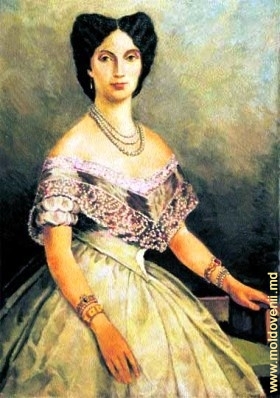 |
| Elena Cuza |
"Three-and-twenty years ago Moldo-Wallachia, then an integral portion of the Ottoman Empire, paying tribute to the Padishah, but self-governed in every essential respect, was ruled by a Hospodar native to its soil and elected by its people. This dignitary, Jon Alecsandru Cusa by name, was a very remarkable man. A Moldavian by birth, he was not a scion of any one of the great Boyar families, Roumanian or Phanariote; but nature had gifted him with excellent abilities, a commanding presence, and a singular plasticity of temperament, enabling him to be 'all things to all men.' He had, moreover, a strong sense of humor, and was one of the most good-natured, easy-going cynics I have ever known. On the other hand, he was untruthful, unscrupulous, and inveterately dissolute. His career was a curious one, as the following rough outline of its leading incidents will show.
"When a lad of seventeen, Cusa had been sent with his cousin Alecsandru Docan, under the care of a tutor, to Paris, there to perfect himself in colloquial French, and, generally speaking, to improve each shining hour. He behaved himself so indecorously, however, in the French capital that it was soon found expedient to recall him home, and a commission was procured for him in the Moldavian militia (dorobantsi), which he was compelled to resign a few months later, having got himself into trouble with the regimental authorities by every conceivable variety of misconduct. He then made a show of studying the law, and was appointed a judge at Galatz through the influence of his uncle, a wealthy and much-respected Boyar. While holding this position---the comparative respectability of which soon became intolerable to him---he embarked in a conspiracy against the Government of the day, took an active part in the Moldavian revolution at Jassy (March, 1848), was arrested by the orders of the then Hospodar, Prince Stourdza, and sent in custody to Galatz for transport to Tultcha, there to be handed over to the Turkish authorities. At Galatz he contrived to escape with Alecsandru Morousi, who, like himself, had been born and bred in the neighborhood of that city, and was known to every peasant in the district. The fugitives were sheltered by Mr. Cunningham, at that time the British consul in Galatz, who smuggled them on board an English ship bound for Marseilles with grain. Cusa was in Paris when Grigor Ghica succeeded to the Hospodarship, and was included in the general political amnesty promulgated on that occasion. He returned to Moldavia forthwith, and remained there, a striking example of idleness and dissolute conduct, until 1856, when, on the death of the Kaimakan Balsch, Nicolai Vogorides, Cusa's particular crony and fellow debauche, was appointed Hospodar. This vivacious prince, a viveur of the very first flight, whose exploits of gambling and gallantry still live in the memories of his contemporaries, at once bestowed a colonelcy in the army upon his friend Cusa, and made him his personal aide-de-camp as well as Prefect of Galatz. Shortly afterwards a general election came on and Vogorides, eager to secure the support of a majority in the new Moldavian Chamber, put up a number of his own creatures for provincial constituencies, obtaining their return by gross and flagrant bribery and corruption. Cusa, who had begun to bid for popularity in his native country, where his reputation in his native country, where his reputation was none of the most fragrant, energetically opposed these elections, and succeeded in inducing the Chamber to annul them. It was at this time that he commenced his public career as a disinterested patriot, uncompromising Liberal, and fearless champion of the people's rights. He married a daughter of the great patrician house of Rosetti, whose dowry provided him with the necessary pecuniary qualification (1500 pounds a year) for election to the Hospodarship; became a deputy of the Unionist platform, and addressed himself assiduously to the task of gaining the good will of the leading Liberals of the day, who for the most part regarded him as a good-natured, amusing ne'er-do-well of no particular political significance." (Monarchs I Have Met: 86)
Also known as:
Elena Maria Catargiu
Elena Maria Catargiu-Obrenovic
Maria Obrenovic
Marie Catargo
Marie Catargiu-Obrenovic.
Daughter of: Costin Catargiu, Romanian landowner,& Smaranditei Bals.
Wife of:
1. A Serb general
2. Milos Obrenovic, Prince of Serbia (d.1860)
Mother of: King Milan I of Serbia.
" . . . Cuza was anything but a model prince. He was not ambitious and he does not seem to have concerned himself with adopting regal ways. He also had a private life which, although not in outright contradiction to Romanian customs, was not well regarded in the head of a state. Living apart from his wife, he had as his mistress Marie Obrenovic, whose son Milan was to become the first king of Serbia. The prince also had no legitimate heir so the problem of succession existed." (The Establishment of the Balkan National States: 1804-1920: 121)
"It was by strange paths that the fourteen-year-old Milan had thus come to his Principality. The son of Jefrenn Obrenovitch, uncle of the reigning Michael, he was cradled one August day in 1854, his mother being Marie Catargo, of the powerful race of Roumanian 'Hospodars,' a woman of strong passions and dissolute life. When her temper and infidelities had driven her husband to the drinking that put a premature end to his days. Marie transferred her affection, without the sanction of a wedding-ring, to Prince Kusa, a man of as evil repute as herself. In such a home and with such guardians her only child, Milan, the future ruler of Servia, spent the early years of his life--ill-fed, neglected, and supremely wretched." (Love Affairs of the Courts of Europe: 290)
"It was by strange paths that the fourteen-year-old Milan had thus come to his Principality. The son of Jefrenn Obrenovitch, uncle of the reigning Michael, he was cradled one August day in 1854, his mother being Marie Catargo, of the powerful race of Roumanian 'Hospodars,' a woman of strong passions and dissolute life. When her temper and infidelities had driven her husband to the drinking that put a premature end to his days. Marie transferred her affection, without the sanction of a wedding-ring, to Prince Kusa, a man of as evil repute as herself. In such a home and with such guardians her only child, Milan, the future ruler of Servia, spent the early years of his life--ill-fed, neglected, and supremely wretched." (Love Affairs of the Courts of Europe: 290)
" . . . Cuza asmitted his limitations; still, he attempted less to overcome them by practical policies and more to find solace in alcohol and in the arms of an attractive Moldavian widow, Maria Catargo Obrenovic. His wife, Elena, nee Rosetti, was barren, but Maria presented him with two sons, whom he adopted in 1865. On some Romanian palates, Cuza's amorous affair smacked of a scheme to establish a native dynasty with bastards as heirs to the crown. . . ." (The Road to Romanian Independence: 13)
Alexandru Ioan Cuza Gallery.
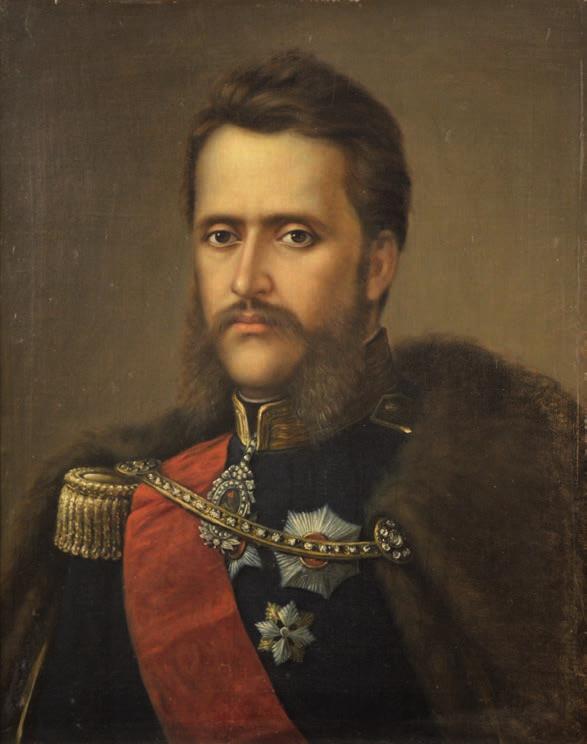 |
| @Wikimedia |
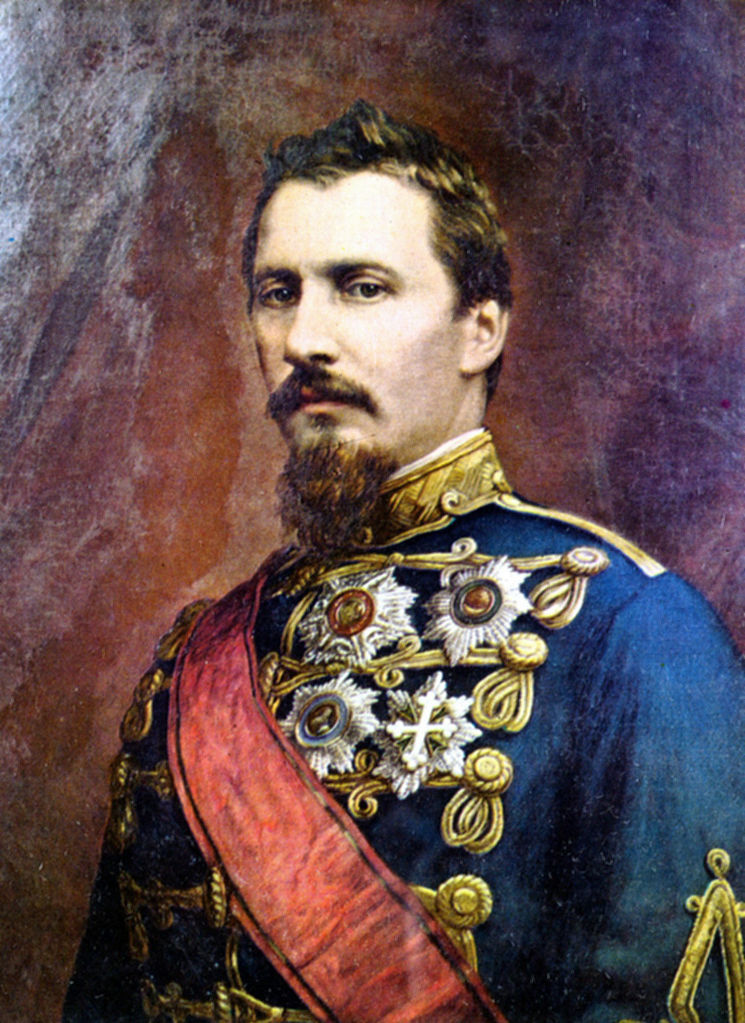 |
| Alexandru Ioan Cuza by Carol Szathmari, bef 1866 |
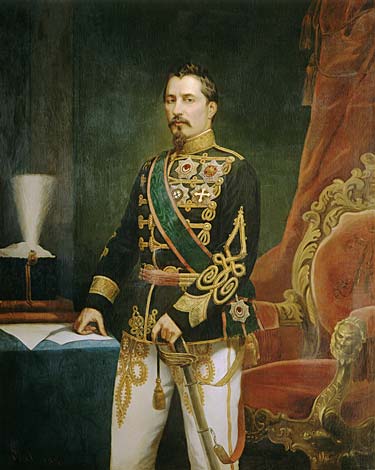 |
| Alexandru Ioan Cuza by Carol Szathmari, c1865 |
 |
| Alexandru Ioan Cuza Lithography by Josef Kriehuber, 1861 |
 |
| Alexandru Ioan Cuza @Modern Romania Photographic Document |
References.
A Passage and the Yellow Tulips @ Twisted Red Ladybug
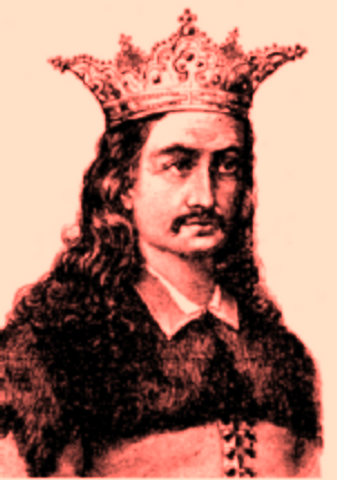

No comments:
Post a Comment